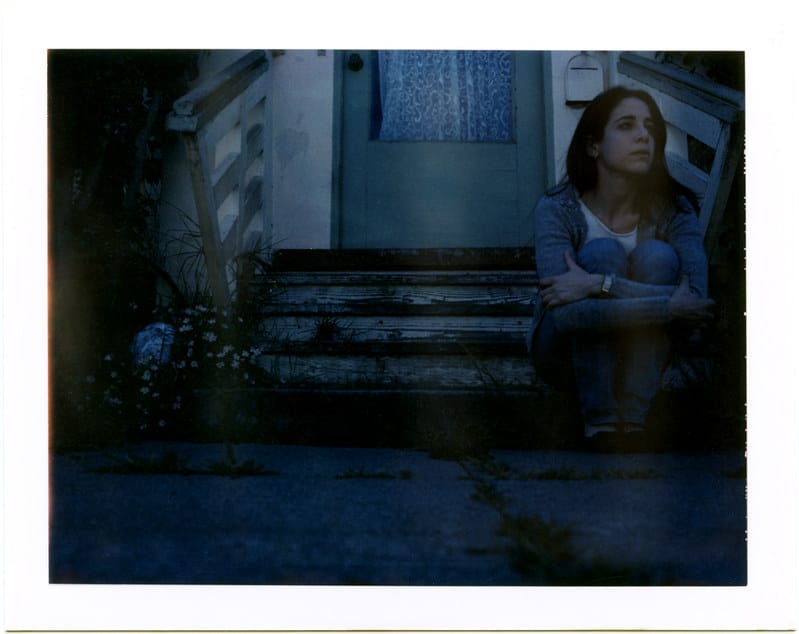April Is Once Again the Cruelest Month

Two years ago, on a beautiful April Wednesday not unlike today, I got laid off from my job at Instagram. If you've never gotten laid off but have always been curious what the experience is like, here's the closest approximation: Think of a time when you got unceremoniously dumped. Maybe it was totally out of the blue, or maybe you had a sense it was coming. You were devastated? Or you felt a deep and overwhelming sense of relief? It may have been a combination of feelings, including fun, life-affirming stuff like shame and anxiety. It may even have seemed like an affront. They had the nerve to dump you?!?
No matter what, in the actual moment, the experience was jarring and destabilizing, like any unilateral decision in which you have no say. You know how it goes: One day it's 1:00 pm and you're in a meeting presenting the incredible and insightful work you've diligently spent your time on in the preceding weeks. The next day it's 1:00 pm and you're wandering around your neighborhood thinking about how fucked up it is that at least one person sat smiling at you in that meeting while knowing full well you were on the chopping block the next day. Your dumb ass blithely prepared your future ex-colleagues to pick apart your work carcass in the most effective manner possible.
After four layoffs over the course of my career, I can confidently say that layoffs are weird. They're somehow totally impersonal – it was a business decision, the company ran out of money, entire projects are getting cancelled, the stock market needed human sacrifice – but still completely personal. Yes, you are one of hundreds or even thousands, but you're still you. A person who now no longer has the job they were counting on for things like income and health insurance. And while I truly believe that every layoff I've personally been through has been for the best in the long run, that doesn't mean it's an easy thing to go through. It's scary, especially in a job market like the current one.
But of all the layoffs I've been through, this one was far and away the weirdest. It unsettled me and got under my skin. I hated admitting this, especially as the news about Meta got worse. Like, was I really bent out of shape I got let go from a place that, a year and a half after the fact, was being primed for a fresh injection of masculine energy? Ew, gross. Even so, there was a real feeling of rejection that lingered and felt raw long after the fact, and I struggled to make sense of it.

It didn't help, of course, that unlike with my other jobs, both Instagram and Meta were constantly, resolutely present in my life. Even had I quit using Instagram (I know, I should, but I follow a lot of animal rescues there and we haven't solved the problem of how to support and stay in touch with nonprofits at that scale yet, so give me a break), there would have been no escape. Either Meta or Instagram is constantly in the news. Add Yours, a feature I helped create, has been in all of Instagram's ads everywhere I look – in print, on TV, in inescapable video ads on the goddamn subway. The stock price soared to new heights thanks to all the lives and livelihoods it gobbled up. I was very nearly deposed by plaintiffs suing Meta in a multi-district lawsuit. I started this newsletter and named it after a part of the performance review cycle! I am an active participant in my own torment!
But no. The torment, such as it is, is something I think is actually an integral part of the tech industry, or at least the wide swath of the tech industry that was incubated in Silicon Valley and fueled by venture capital. The FAANGs, the unicorns, and all the startups that aspire to this level. In this world the feeling I've had these past few years is, you could say, a feature and not a bug.
When I think about the tech industry, I think a lot about what an incredible sleight of hand it pulled off for so long. The words "tech" and "industry" are right there in the name, and yet for years it did a pretty good job of acting like it was really about people! Its companies weren't regular companies, they were cool companies! Maybe you're a smarter, better person than I am and never fell for it, not even for a second. I'm pretty cynical, and I absolutely thought it was all bullshit starting in at least 1999, but even I allowed myself to drink the proverbial Kool-Aid once. If ever there were I time, I told myself, it's at Slack, which I joined in 2015. It did feel different, at least at first! Then six months in I was reminded that it was still a corporation, and no matter how special and different it might seem, a corporation cannot fundamentally give a shit about you, no matter how nice the swag and perks are.
If I'm so cynical, then why am I still feeling some kind of way, a decade after I started at Slack, which certainly wasn't my first job in the industry? Why do I still feel bad when I see all the people at Instagram who are still there, working together and celebrating product launches, even though I know how most of them really feel – and even though I know how I felt when I worked there? (Mostly bad.) And maybe this is the most cynical, but I think it's by design. I think it's for the same reason that all of the products these companies make seem so great at first, and then over time we end up hating both the products and ourselves for not being able to fully quit them. Ultimately, they're reflections of each other. At first they feel so intimate, so personal and meaningful, and then almost overnight they suddenly shift, and you wonder how everything became so slick and corporate, clogged with ads and a shitty algorithm and a bunch of features no one asked for. Just like in a layoff. It's business, baby.

I guess that's really why I'm writing this newsletter and working on this book. I actually don't believe it needs to be this way. If you really prioritize people over technology, connection over growth, community over industry, you might not get as big or as rich or as powerful, but you might also build something that matters. I think what I miss when I see these team celebrations and product launches – besides the salary and benefits, I mean, because I cannot lie, they were great – was the ability to work closely with smart people on projects that we believed in. What I see when I look at that work now is the same thing I see when I look at most social media: A facsimile of the thing I really want. And that's why it feels so bad to see it, over and over again, because it's just a fleeting projection of a deeper longing, like any Instagram story or chance conversation with a stranger on Bluesky.
It's funny, but I really do feel better having written this. There's something to be said for scaling down ambition to something that feels more human. The spirit of Meets Most lives on.
Until next Wednesday.
Lx
Leah Reich | Meets Most Newsletter
Join the newsletter to receive the latest updates in your inbox.
